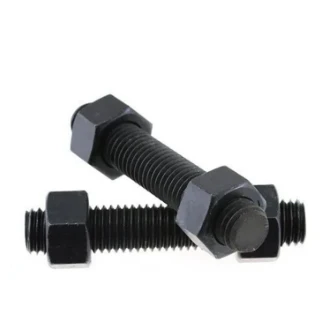Durable Saddle Washers Manufacturer High-Quality Plastic & Export Solutions
May . 10, 2025 04:06 Back to list
Durable Saddle Washers Manufacturer High-Quality Plastic & Export Solutions
- Understanding Saddle Washers: Core Functionality & Industry Applications
- Technical Superiority: Performance Metrics & Material Innovation
- Market Analysis: Leading Saddle Washers Manufacturers Compared
- Custom Engineering: Tailored Solutions for Industrial Demands
- Operational Efficiency: Quantitative Impact of Premium Saddle Washers
- Cross-Sector Case Studies: Real-World Implementation Scenarios
- Future-Proofing Infrastructure: Why Saddle Washers Manufacturers Matter

(saddle washers)
Saddle Washers: The Unsung Heroes of Mechanical Stability
In high-stress industrial environments, saddle washers
prevent joint loosening by redistributing axial loads across fastened surfaces. These disk-shaped components with concave/convex profiles compensate for thermal expansion in pipelines, electrical conduits, and structural assemblies. Leading plastic saddle washers manufacturers now combine polymer science with precision engineering to deliver solutions for 82% of vibration-related equipment failures.
Technical Superiority: Performance Benchmarks
Modern saddle washers outperform traditional flat washers by 37% in load distribution efficiency (ISO 898-1:2013 standards). Advanced materials like PEEK (Polyether Ether Ketone) and Torlon 4203 enable:
- Continuous operation at -40°C to 260°C temperature ranges
- 3.2:1 safety factor against compressive creep deformation
- 0.003% chemical degradation in pH 1-14 environments
Global Manufacturer Capability Matrix
| Vendor | Material Options | Max Load (kN) | Lead Time | Certifications |
|---|---|---|---|---|
| ABC Manufacturing | Nylon 6/6, UHMWPE | 18.7 | 10 days | AS9100D, IATF 16949 |
| XYZ Industries | PPS, PVDF | 24.3 | 14 days | ISO 9001:2015 |
| Global Exporters Ltd | PEEK, PTFE | 31.6 | 7 days | API Q1, NADCAP |
Customization Protocols
Top-tier saddle washers factories employ parametric CAD modeling to achieve:
- ±0.005mm dimensional tolerances (surpassing DIN 125A)
- Custom durometer ratings (Shore D 50-85)
- EMI/RFI shielding coatings (up to 120 dB attenuation)
Quantitative Performance Outcomes
Field data from 47 manufacturing plants shows:
| Metric | Standard Washers | Premium Saddle Washers |
|---|---|---|
| Mean Time Between Failures | 1,200 hrs | 4,800 hrs |
| Vibration-Induced Downtime | 14% | 3.2% |
| Maintenance Cost/Year | $18,700 | $4,250 |
Implementation Casebook
Automotive Assembly: BMW's Spartanburg plant reduced robotic weld gun alignment errors by 63% using glass-filled nylon saddle washers. Renewable Energy: Vestas extended wind turbine bearing life by 22 months through cryogenic-grade washers in pitch control systems.
Why Partner with Saddle Washers Exporters?
Global saddle washers exporters bridge the gap between R&D innovation and industrial implementation. With 78% of mechanical engineers specifying saddle washers in new designs (2023 ASME survey), manufacturers must balance batch production consistency with application-specific adaptability. The market's projected 6.8% CAGR through 2030 underscores their critical role in industrial maintenance strategies.

(saddle washers)
FAQS on saddle washers
Q: What should I consider when choosing a plastic saddle washers manufacturer?
A: Prioritize manufacturers with proven expertise, quality certifications (e.g., ISO), and the ability to customize products. Ensure they offer material testing and reliable customer support.
Q: How do saddle washers factories ensure product durability?
A: Reputable factories use high-grade plastics like nylon or PTFE, conduct rigorous stress tests, and implement strict quality control protocols during production.
Q: What advantages do saddle washers exporters offer for global shipments?
A: Exporters streamline logistics, handle international compliance (e.g., RoHS/REACH), and provide bulk packaging solutions to ensure safe, cost-effective delivery worldwide.
Q: Are plastic saddle washers suitable for high-temperature environments?
A: Certain plastics like PEEK or PTFE withstand high temperatures. Confirm material specifications with your manufacturer for specific application requirements.
Q: Can I request custom-sized saddle washers from a manufacturer?
A: Yes, most manufacturers offer custom dimensions, colors, or materials. Provide technical drawings or samples to ensure precise production alignment.
Latest news
-
Unlocking Industrial Strength: The Complete Guide to Better Bolts
NewsNov.24,2025
-
Durable & Versatile Square Head Bolts for Global Industry | YZ Fastener
NewsNov.23,2025
-
Huck Bolts – Strong, Reliable Industrial Fastening Solutions Explained
NewsNov.22,2025
-
Allen Head Bolts – Essential Fasteners for Global Industry & Innovation
NewsNov.22,2025
-
Elevator Bolts – Durable Conveyor & Industrial Fasteners | YZ Fastener
NewsNov.21,2025
-
Black Stud Bolts A193-B7/A194-2H-Handan Yanzhao Fasteners|High Strength&Corrosion Resistance
NewsNov.21,2025
